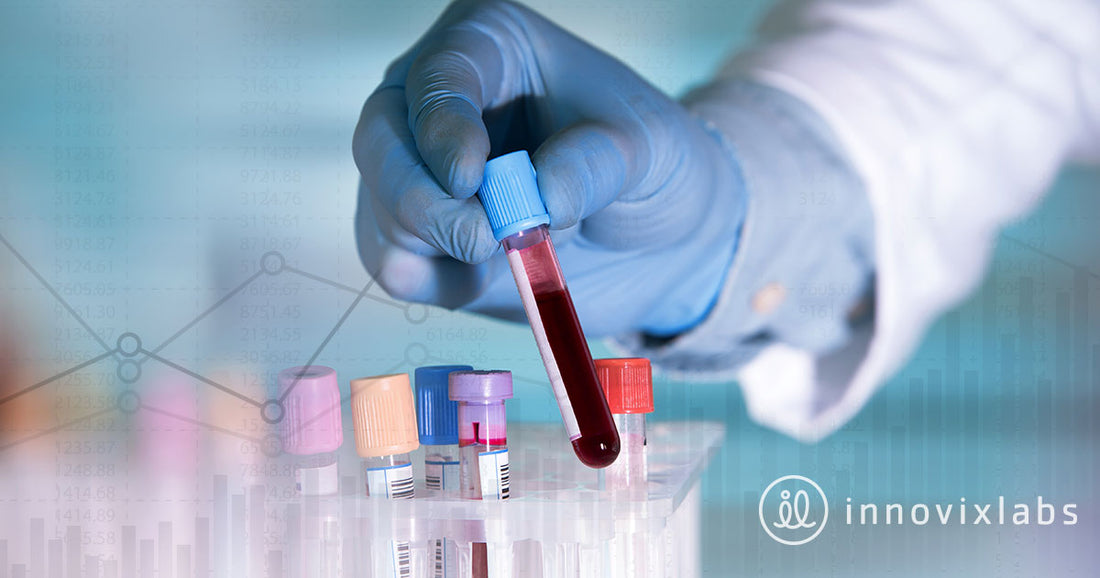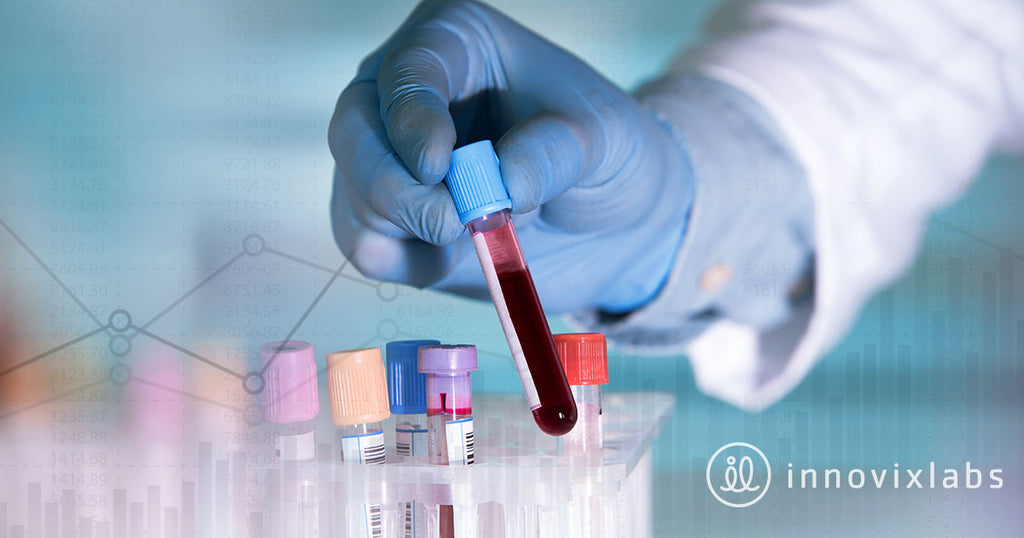Vitamin K1 Testing
There are two major tests for Vitamin K1.
1. Prothrombin Time is a marker of blood clotting. If you are taking blood thinners, you doctor may have run INR (International Normalized Ratio) to help adjust your dosage of your anticoagulant meds.
2. Serum Vitamin K is another test your doctor could suggest for K1 status. This may not be the best option for you because this test only looks at the very recent past.
Vitamin K2 Testing
While tests for Vitamin K1 are aimed at blood clotting and coagulation, tests aimed at K2 are focused on bone health markers.
Tests for Vitamin K2 are also not easily available. Not yet anyway.
This is because Vitamin K2 itself is challenging to measure. But what labs can measure are proteins that are activated by Vitamin K2.
If you can measure the 'level of activation' of these Vitamin K2 dependent proteins, you get a rough idea of your Vitamin K2 status.
We know that Vitamin K2 deficiency results in a decreased level of active osteocalcin.
Osteocalcin is a protein found in bone and teeth. It is produced by bone-building cells, called osteoblasts. Low levels of active osteocalcin (or high levels of inactive osteocalcin) contributes to fragile bones.
Still, you cannot use a bone mineral density test as an alternative for K2 test because bone mineral density can be influenced by many factors other than Vitamin K2.
Taking Vitamin K2 reduces the level of inactive osteocalcin, which suggests that it's making bones stronger.
Fortunately, LabCorp and Quest both offer Osteocalcin tests.
Genova lab offers undercarboxylated Osteocalcin (ucOC).
Ideally, if you know the ratio of active to inactive ostocalcin, you'd be better off, but to date, we have seen a lab offer that ratio.
A new Vitamin K2 test for your artery walls
If you're concerned about calcification of soft tissues like arteries or gums, the test you want is an assay for uncarboxylated MGP. This is a really good marker of Vitamin K2 level in artery walls and blood vessels. Interesting, this test is used for people on dialysis because people with kidney issues often have chronic Vitamin K2 deficiency.
Unfortunately, this test is not widely available. Talk to your doctor about this if you're interested.
Stuff that must be said:
We sell Vitamin K2 supplements on this website. It goes without saying (but we’ll say it anyway) that we do not make claims that taking our K2 supplement will treat, cure or prevent any disease.
People with kidney disease may need higher amounts of K2. And those taking anticoagulant medications should not change their Vitamin K intake (regardless of form) except under the strict supervision of the prescribing physician. Why? Because first-gen anticoagulants work by deactivating Vitamin K and maintaining the body in a constant state of K deficiency. Newer anticoagulant drugs do not induce Vitamin K deficiency. Talk to your doctor about it.
Supplements may help, but supplements alone will not restore you to complete health. We think supplements are a small piece of the health puzzle. You cannot outrun a bad diet and inactivity with pills. Most of the heavy lifting involved in restoring your health will have to come from you in the form of healthy eating and lifestyle corrections. In these articles, we are merely sharing our excitement about nutritional science and doing our best to translate dense science into easy-to-read English. We geek out on nutrition science and we think you will too. We hope it makes you a more informed consumer. Our Legal Dept says the same thing in Legalese at the bottom of this page. Enjoy.


